Individual Projects
Christian Bernal-Cordoba, Animal Biology, PhD Candidate
From PhD to Profession: Real Stories and Strategies for Career Success
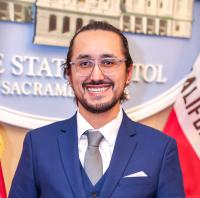
Project Summary:
To address the lack of accessible career guidance for graduate students and postdocs, this initiative creates a scalable mentorship resource featuring recorded interviews with professionals who have successfully transitioned into academic roles. These interviews—available as podcasts and written blog posts—offer practical insights into job searches, application strategies, and career decision-making. Each 30–45 minute session focuses on the final stages of the PhD or postdoc journey and is tailored by discipline to ensure relevance. Interviews are conducted remotely and in English to maximize accessibility. The content will be shared via platforms like YouTube, Spotify, and a dedicated blog, allowing students to engage in their preferred format. The project aims to build a growing, sustainable library of mentorship stories, with future graduate students contributing new interviews. Aimed primarily at PhD and postdoctoral researchers—but also valuable for master’s students—this resource empowers trainees, especially those from underrepresented backgrounds, with the knowledge and confidence to pursue academic careers.
Sara Hariri, Biochemistry, Molecular, Cellular and Developmental Biology, PhD Candidate
Breaking Barriers: Women in academia share their journeys
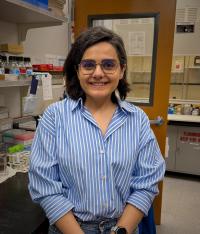
Project Summary:
This project supports women in academia by organizing inclusive panel discussions featuring successful scholars from diverse backgrounds—including women of color, LGBTQ+ women, and women with disabilities—alongside current graduate students and postdocs. These panels will normalize challenges like imposter syndrome, bias, and work-life balance, helping trainees feel seen and supported. To move from inspiration to action, the project will also offer a series of skill-building webinars and workshops on topics such as emotional resilience, equity in science, lab selection, and interpersonal communication. In partnership with the Association for Women in Science (AWIS), the initiative will provide mentorship, resources, and leadership development opportunities. A mentorship program pairing female trainees with UC Davis faculty and an online resource hub will ensure long-term accessibility and impact, fostering equity and empowerment for women in STEM.
Ece Goktayoglu, Chemical Engineering, PhD Candidate
Shaping Futures: Supporting the Growth and Success of International Women in Engineering
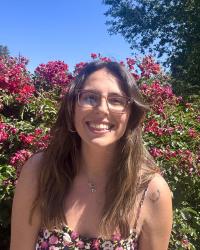
Project Summary:
This project aims to improve the recruitment and retention of graduate students and postdoctoral scholars from diverse backgrounds—particularly international women in engineering—by addressing key barriers to academic and professional success. Through global partnerships, the project will conduct targeted outreach via webinars, mentorship, and informational sessions to demystify the application process and highlight diverse success stories. To support retention, it will offer mentorship from faculty and professionals with shared experiences, along with workshops and networking opportunities that prepare scholars for careers in academia and industry. By combining community-building, career development, and advocacy, this project will create a sustainable support system that empowers international women in engineering to thrive and lead in their fields.
Joaquin Mogollon Santiana, Chemical Engineering, PhD Candidate
Community success network for underrepresented engineering students.
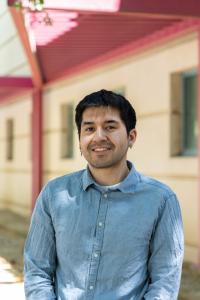
Project Summary:
This initiative aims to improve representation and mentorship for underrepresented students in engineering through two key programs: a speaker series and a peer tutoring network. The first component is a seminar and panel series featuring Black and Hispanic students, faculty, and professionals from the Bay Area. These events will highlight diverse career paths and lived experiences, offering students relatable role models and practical guidance. The series will expand on existing DEI efforts and leverage partnerships with organizations like SHPE and NSBE. The second component is a tutoring and mentorship program that pairs undergraduates with senior students, graduate mentors, and faculty. Through monthly study groups, the program will provide academic support, foster community, and open doors to research and career opportunities. Together, these initiatives will build a stronger, more inclusive engineering community where underrepresented students feel supported, connected, and empowered to succeed.
Elizabeth Reyes Gallegos,Entomology and Nematology, PhD Candidate
From Classroom to Research Lab: Guiding Community College Students Toward Graduate School Preparedness
Project Summary:
This project supports community college students in preparing for graduate school by guiding them through the process of applying to research internships. Inspired by the organizer’s own transformative experience with the Leadership Alliance SR-EIP, the project consists of a four-part workshop series. The series includes:
- Introduction to Research – What research is, why it matters, and how to find internship opportunities.
- Statement of Purpose Writing – Step-by-step guidance on crafting a compelling application essay.
- Peer Review & Recommendation Letters – Feedback exchange and tips for requesting strong faculty references.
- Graduate Student Q&A – Small-group discussions with UC Davis graduate students about how research shaped their academic paths.
Sage Madden, Biochemistry, Ecology, PhD Candidate
Promoting Recruitment and Retention of Neurodivergent Graduate Students and Postdocs Through Accessible Mentorship
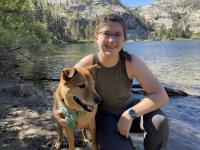
Project Summary:
This project supports the recruitment and retention of neurodivergent graduate students through a two-part initiative: a virtual event series and an online mentorship toolkit. The virtual series includes an expert talk, a panel discussion, and two interactive workshops. These sessions will explore the barriers neurodivergent students face in mentoring relationships and provide practical strategies for both mentees and mentors. The workshops will focus on empowering neurodivergent graduate students and training mentors to foster inclusive, trauma-informed relationships. All materials from the series will be compiled into an accessible online toolkit. This resource will fill a critical gap in existing mentorship materials by offering guidance tailored specifically to neurodivergent students and their mentors. Designed for long-term use, the toolkit will help create more inclusive academic environments across UC Davis and beyond.
Davrina Rianda, Biochemistry, Nutritional Biology, PhD Candidate
TeachUp: Elevating Teaching Confidence & Communication For All
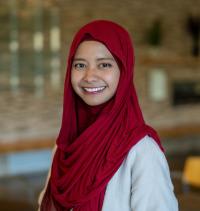
Project Summary:
TeachUp is a peer mentoring and workshop initiative designed to support first-time TAs, international graduate students, postdocs, and those with public-speaking anxiety. The program aims to build teaching confidence and adaptability through mentorship and innovative training. The core of the project is a peer mentoring program that pairs new TAs with experienced TAs and Associate Instructors within their disciplines. This is complemented by a kickoff workshop series developed in collaboration with the Center for Educational Effectiveness (CEE) and the Department of Theatre and Dance. Workshops will include sessions on activating lectures and using improv theater techniques to reduce anxiety and improve classroom engagement. By integrating mentorship, tailored training, and creative teaching strategies, TeachUp will enhance existing resources and foster a more supportive teaching environment at UC Davis.
Ibrahim Bàbátúndé Anọ́ba, History, PhD Candidate
The Public Research Communication Program
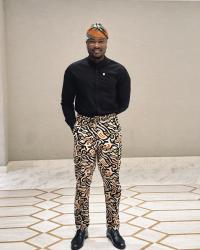
Project Summary:
In response to the closure of UC Davis’s Office of Public Scholarship and Engagement, the Public Research Communication Project (PRCP) aims to fill a critical gap in training for graduate students and postdocs—particularly those in fields like Indigenous studies, environmental conservation, and public health—where public engagement is essential.
PRCP offers practical, non-credit training in public research communication, equipping scholars with skills to translate complex research into accessible formats such as op-eds, media appearances, and public talks. This initiative is especially valuable for international and underrepresented students, who often seek programs that offer both academic rigor and professional development.
By enhancing scholars’ ability to communicate with the public, PRCP not only supports career advancement but also strengthens UC Davis’s appeal to prospective students from diverse backgrounds. The project promotes inclusive academic excellence and addresses the broader need for effective science communication in an era of widespread misinformation.
Danyelle Forte, Biochemistry, Horticulture and Agronomy Graduate Group, PhD Candidate
Beyond the Bench: Science Blogging to Foster Connection and Career Growth
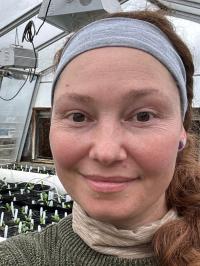
Project Summary:
This project addresses the isolation often experienced in graduate research by teaching students how to create and maintain a science blog. Through a structured workshop series, participants will learn to define their niche, write for diverse audiences, incorporate visuals, optimize for search engines, and promote their content. Blogging offers a creative outlet that keeps students intellectually engaged, builds resilience, and fosters a sense of belonging in the scientific community. It also enhances communication skills vital for careers in academia, science outreach, journalism, and policy. Over time, a well-maintained blog can expand professional networks, serve as a personal portfolio, and position students as thought leaders in their field. By equipping students with science communication tools, this initiative promotes connection, confidence, and career development beyond the lab.
Melissa Gomes, Linguistics, PhD Candidate
Implementing Service Learning in Academic Classrooms
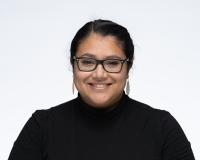
Project Summary:
This project aims to train and empower graduate students to integrate service learning into their future classrooms by connecting them with UC Davis faculty already engaged in this work. Through interdisciplinary collaboration, the initiative will develop both synchronous (e.g., workshops, panels) and asynchronous (e.g., recorded interviews, guides) resources to ensure accessibility and long-term impact. The project emphasizes inclusive, cross-disciplinary input and stakeholder engagement—from faculty and students to community partners—to ensure that service learning practices are ethical, sustainable, and beneficial to all involved. By equipping graduate students with practical tools and community-informed perspectives, this initiative will foster more engaged, socially responsive teaching across disciplines.
Alejandra Cano, Biochemistry, Native American Studies, PhD Candidate
Learning to Embody Our Research to Decolonize and Deconstruct Imposter Syndrome
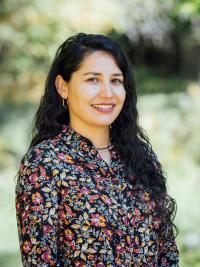
Project Summary:
This initiative supports first-generation and underrepresented graduate students by redefining mentorship through storytelling, community-building, and inclusive research communication. Inspired by research with Indigenous stingless beekeepers in Colombia, the project affirms lived experience as a source of scholarly strength.
Key components include:
- Peer Mentorship Circles: Small, interdisciplinary groups led by senior students and faculty to foster support and share research narratives.
- Embodied Storytelling Workshops: Training in narrative reflection, sensory writing, and oral history methods to integrate personal and community-based knowledge into academic work.
- Skill-Building for Public Engagement: Workshops on translating research for broader audiences, public speaking, and interdisciplinary collaboration.
- Sustainable Resource Network: An online platform offering mentorship tools, communication resources, and ongoing peer support.
By centering diverse epistemologies and lived experiences, this project cultivates academic belonging and empowers scholars to thrive within and beyond the university.
Christofer Brothers, Neurobiology and Physiology, PhD Candidate
Shattered Monoliths: Breaking down the experiences of multiracial identities in academia
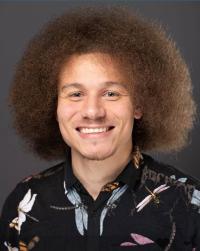
Project Summary:
This initiative addresses the invisibility and lack of support for multiracial graduate students and postdocs at UC Davis. Despite multiracial individuals making up over 10% of the U.S. population, institutional data often erases their identities by categorizing them under a single “primary race.” This project seeks to create space for dialogue, visibility, and community among scholars with multiple racial identities. Through a symposium or panel series, the project will bring together multiracial UC Davis affiliates to share experiences, identify existing and missing resources, and discuss how demographic representation can be made more equitable. The initiative will also explore how intersecting identities shape academic journeys and propose solutions for more inclusive support systems. Long-term goals include forming a sustained peer network and compiling a resource guide for incoming multiracial graduate students. By centering lived experience and intersectionality, this project fosters belonging and advocacy for a historically overlooked demographic in academia.
Sophie Gretler, Biochemistry, Pharmacology and Toxicology, PhD Candidate
Tips for success from women in academia
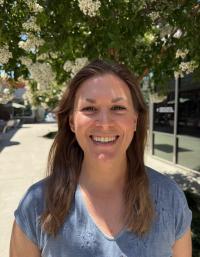
Project Summary:
This project aims to support aspiring female academics by demystifying the path to faculty positions at research universities. The event will feature a faculty panel representing diverse disciplines—including humanities and STEM—followed by a roundtable lunch to foster informal discussion and networking. Panel topics will include career progression, mentorship, gender bias, and family planning. To encourage open dialogue, attendees can submit questions anonymously before and during the event. Confirmed panelists include Dr. Renée Tsolis (Medical Microbiology and Immunology) and Dr. Jenna Stearns (Economics), who bring expertise in academic leadership and gender equity research. The roundtable lunch will connect students with panelists in small groups, promoting mentorship and peer support. The organizer also plans to explore collaboration with the UC Davis Health Women in Medicine and Health Sciences (WIMHS) program to highlight institutional strategies for supporting female faculty. By increasing awareness of academic career challenges and opportunities, this initiative will empower graduate students and postdocs to make informed decisions and build supportive professional networks.
Jonathan M Berlingeri, Plant Sciences, PhD Candidate
Grad School Demystified: From Interest to Acceptance
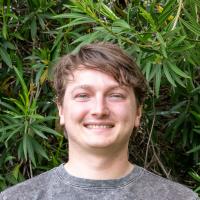
Project Summary:
This project aims to improve the recruitment and retention of diverse graduate students and postdoctoral scholars by providing structured guidance and mentorship through a series of inclusive information sessions. Our focus is on first-generation, low-income, and historically underrepresented students—those with the same talent and potential as their peers but who, due to systemic barriers, may not see graduate school as an accessible or viable path. By fostering connections between undergraduates, graduate students, and postdocs, this initiative creates mentorship opportunities that extend beyond the sessions. It also addresses key barriers such as financial considerations, funding access, and career pathways. Ultimately, this project empowers students with the knowledge, support, and confidence needed to pursue graduate education and thrive in academic and professional spaces.
Maritza Miramontes, Psychology, PhD Candidate
Comunidad: Building Community in Hispanic, Chicanx, and Latinx Graduate Students and Postdocs
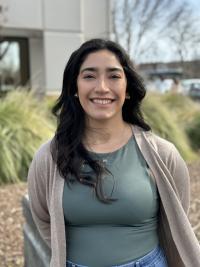
Project Summary:
This project proposes Comunidad, an initiative to update and expand the outdated Testimonios section on UC Davis’s Avanza website. The goal is to better reflect the current experiences of Hispanic/Latinx graduate students, postdocs, and faculty, whose voices are currently underrepresented. Through interviews with UC Davis affiliates across disciplines, Comunidad will highlight how individuals have found support, built community, and developed academically. Drawing on the organizer’s leadership in the Latinx Success Network (LSN), the project will feature diverse perspectives from across campus. Additionally, the project will enhance the HSI Resources tab by compiling a curated list of active graduate student organizations aligned with HSI goals. This will make it easier for graduate students and postdocs to find and connect with relevant communities, improving visibility and access to support networks. Together, these efforts will foster greater inclusion, visibility, and engagement for the growing Hispanic/Latinx graduate community at UC Davis.
Nathalie Moriarty, Psychology, PhD Candidate
NeuroGrads- Neurodivergent Graduate and Professional Network
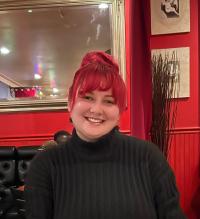
Project Summary:
This project addresses the social isolation and professional barriers faced by neurodivergent graduate students and postdoctoral scholars by creating a dedicated, graduate-level support network at UC Davis. While existing neurodivergent resources primarily serve undergraduates, this initiative will establish a structured, identity-affirming space specifically for early-career academics. The project includes:
- A graduate-focused social support group for community-building, resource sharing, and peer connection.
- Skill-building and professional development workshops led by neurodivergent professionals across disciplines, offering insight into navigating academia and alternative career paths.
- A centralized resource hub with guides on accommodations, healthcare, and mentorship tailored to neurodivergent needs.
By creating a sustainable, graduate-specific support system, this initiative will foster belonging, reduce stigma, and improve access to the hidden curriculum of academia for neurodivergent scholars.
Shannon Klotz, Psychology, PhD Candidate
Preparing students for meaningful science conversations with their community
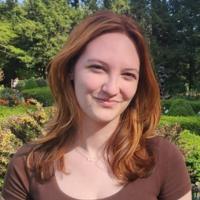
Project Summary:
This project empowers graduate students and postdocs to bridge the gap between academic research and public understanding by developing practical science communication skills. Through interactive workshops, participants will learn to translate complex research into accessible narratives, navigate public skepticism, and engage diverse audiences without oversimplifying their work. Guided by faculty and professional science communicators, participants will apply these skills in real-world settings—leading community discussions, partnering with schools, and creating digital content such as videos, blogs, and infographics. A digital resource hub will house tools, guides, and examples to ensure long-term accessibility. By equipping early-career researchers to foster scientific literacy in their communities, this initiative promotes a culture where science is not only communicated—but understood, valued, and actively discussed.
Connie Tsz Fai Wong, Soils and Biochemistry, PhD Candidate
The Grad Table: Cooking, Culture, and Community
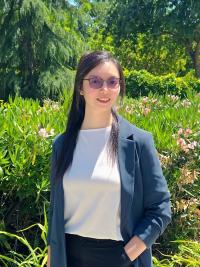
Project Summary:
Elizabeth Sahagun, Internal Medicine, Postdoctoral Scholar
Thinking Outside the Box: A Whiteboard and Workshop Series
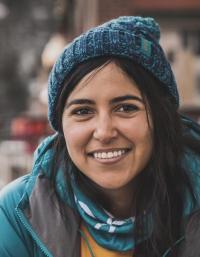
Project Summary:
This initiative fosters interdisciplinary collaboration among graduate students and postdocs through themed whiteboard sessions and structured workshops. Designed to break down disciplinary silos, the program provides informal spaces for brainstorming around broad societal challenges—such as public health or agriculture—followed by workshops that guide participants in developing collaborative research proposals. The sessions promote spontaneous idea-sharing, while the workshops offer training in interdisciplinary methods, communication, and project development. Participants will also gain skills in project management and public engagement, with an emphasis on real-world impact. By building a vibrant, cross-disciplinary community and equipping early-career researchers with tools for collaboration, this initiative supports innovation, mentorship, and inclusive academic networking.
Joanna Rothwell, VM Population Health and Reproduction, Postdoctoral Scholar
Research Remix: Scholars on Air
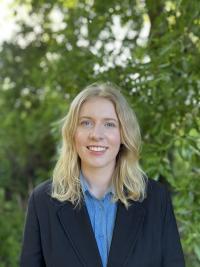
Project Summary:
Research Remix: Scholars on Air is a radio interview series on KDVS, the UC Davis student station, where graduate students and postdocs share their research in accessible, engaging conversations. Each 20-minute segment helps early-career scholars develop science communication skills in a low-pressure, audio-only format that reduces presentation anxiety and fosters storytelling. The project includes:
- Pre-interview coaching on storytelling and radio communication
- Active recruitment of participants from underrepresented groups
- Focus on research topics relevant to local communities, such as agriculture Audience engagement through social media and call-in questions
- Podcast recordings to extend reach beyond live broadcasts
Building on the organizer’s experience in national science radio, the program aims to amplify diverse voices, connect UC Davis research with the public, and create shareable content for scholars’ professional portfolios. Future expansion may include partnerships with local commercial radio stations to broaden impact across the Sacramento region.
